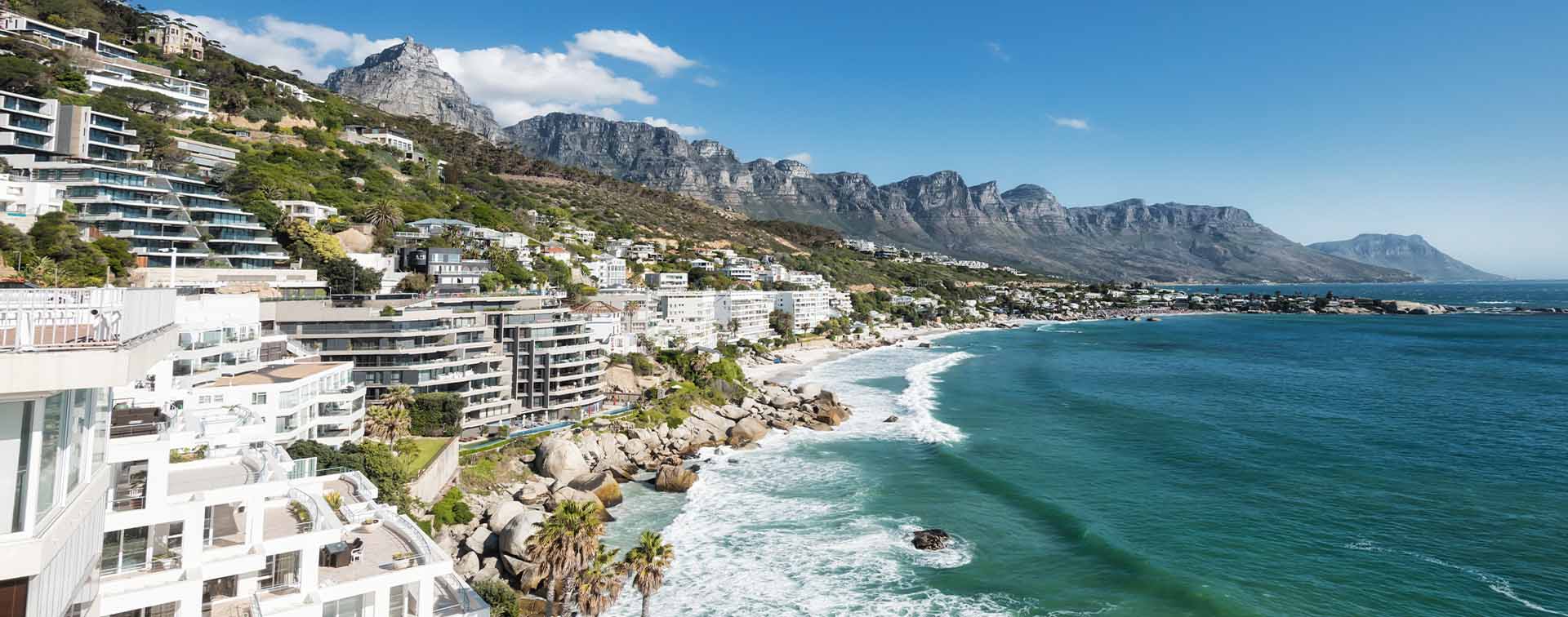
Berry Everitt is CEO of Chas Everitt International, the property group at the forefront of marketing luxury real estate in South Africa to both local and foreign high-net-worth individuals.
Global wealth is on the move as high-net-worth individuals relocate from longstanding wealth strongholds to other countries in increasing numbers. And via the Leading Real Estate Companies of the World network, we are seeing a clear impact on luxury property markets in the emerging wealth hubs that are attracting millionaires. These include countries such as the UAE, Saudi Arabia, Singapore, and Switzerland, but more surprisingly Italy, Greece, Canada and Australia, all of which are proactively working to attract more millionaires and billionaires and the capital they will inject into their economies.
When one analyses why these countries are attracting high-net-worth investors, it’s clear that there are three main factors motivating millionaire relocations: quality of life, new economic opportunities, and favorable taxation rules. The first two drivers are particularly relevant in Africa, as is evident if one tracks the current wealth flows within its wealthiest country, South Africa, and the continent as a whole, as well as the effects of these movements on luxury property demand, development, and prices in certain cities and other affluent nodes.
Figures from the Africa Wealth Report 2025 show that South Africa currently has 3,700 more resident millionaires than last year, but that they are not necessarily living in the financial heartland of Gauteng as one might expect. The Western Cape now has a higher high-net-worth-individual population than Gauteng, with 17,300 millionaires spread between Cape Town, the Winelands, the Whale Coast, and the Garden Route, compared to approximately 14,000 who live in Johannesburg and Pretoria. Notably, the southern region is also home to 65 of South Africa’s 112 centi-millionaires and six of its eight billionaires.
This wealth redistribution has developed over many years, starting with the ‘semigration’ of affluent families from Gauteng and other parts of the country to the Western Cape in pursuit of the better quality of life the province offers. The rise of remote working during the Covid-19 pandemic accelerated this trend, which has lately been further underpinned by the growing international recognition of Cape Town, in particular, as one of the best cities in the world to live in.
This has resulted in more international high-net-worth families joining their South African counterparts in the ‘Mother City’, and a growing shortage of luxury homes for sale in high-demand areas like the Atlantic Seaboard and Constantia. Prices have soared and that has led, in turn, to buyers broadening their search to other parts of the province that also offer exceptional lifestyle advantages. These include the Whale Coast and its central town of Hermanus, where property sales have doubled in the past five years and the average home price has risen by 75%, and the Winelands, where prices in luxury wellness estates like Val de Vie have almost tripled since 2020.
Other millionaire hotspots in the Western Cape include George and Plettenberg Bay on the Garden Route along the southern coast, which boasts a string of world-class golf estates and signature courses where many high-net-worth-individuals from abroad are now snapping up magnificent luxury homes with sea and mountain views and easy access to quality schools, private healthcare amenities, and upmarket shopping venues — all for a fraction of what it would cost them to enjoy this lifestyle elsewhere in the world.

The quality of life in Johannesburg and Pretoria has continued to decline in the past year owing to deteriorating transport, electricity, and water infrastructures, poor municipal management, and relatively high crime levels. Not surprisingly, this has resulted in prime property prices in Central Sandton stagnating at around USD 1,800 per m2, while those in Cape Town have soared over the past five years to reach USD 5,800 per m2.
It has also led to new residential development in Johannesburg largely being restricted, currently, to the conversion of under-utilized office blocks and office parks into rental apartments, while Cape Town enjoys a development boom that is bringing hundreds of new, upmarket housing options to the market.
Johannesburg does, however, have some saving graces, including much lower prices for luxury properties. It also remains the home of most of South Africa’s blue-chip companies and is regarded by investors as a good launchpad for businesses targeting Africa’s new and lucrative markets. It still meets the second key relocation driver — business opportunity — and may just manage to hang on to its position as Africa’s wealthiest city in the years ahead if local authorities follow through on their recently drafted renewal plans.
Beyond South Africa, two other African locations are rapidly gaining traction in the luxury property space. These are Mauritius and Morocco, which the Africa Wealth Report 2025 highlights as having the fastest millionaire growth in Africa over the past decade.
The Indian Ocean island of Mauritius is now home to 4,800 millionaires, a large percentage of them South Africans who have relocated for both lifestyle and tax reasons. Most have bought property in upscale, gated developments around Tamarin on the island’s west coast, where prices average USD 4,500 per m2. Many have also moved their businesses to Mauritius to benefit from its low-tax environment.
Morocco, meanwhile, is increasingly seen as the northern gateway to Africa, especially by European and Middle Eastern investors. It offers them political stability, strategic geography, and strong infrastructure — including high-speed rail — plus tax-free export zones. These factors are drawing high-net-worth investors looking to tap into Africa’s growth and infrastructure development under the burgeoning African Continental Free Trade Agreement (AfCFTA), and with 7,500 millionaires, Morocco is now the continent’s third-biggest wealth hub after South Africa and Egypt. In addition, Tangier, with its strategic location as the closest African port to Europe, is currently experiencing the highest luxury property demand in Morocco and prices of around USD 1,700 per m2, which makes it one of the 10 most expensive cities in Africa.
This underscores the fact that Africa’s luxury property markets and wealth hubs will increasingly be shaped by the global flow of capital towards new destinations offering upmarket lifestyle attractions and/or enticing business opportunities — and that the key to achieving long-term growth in these markets will be the ability to magnify these factors in the eyes of high-net-worth investors.